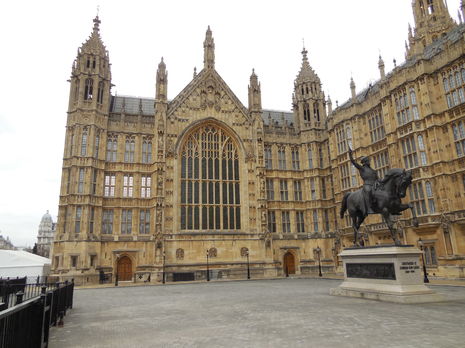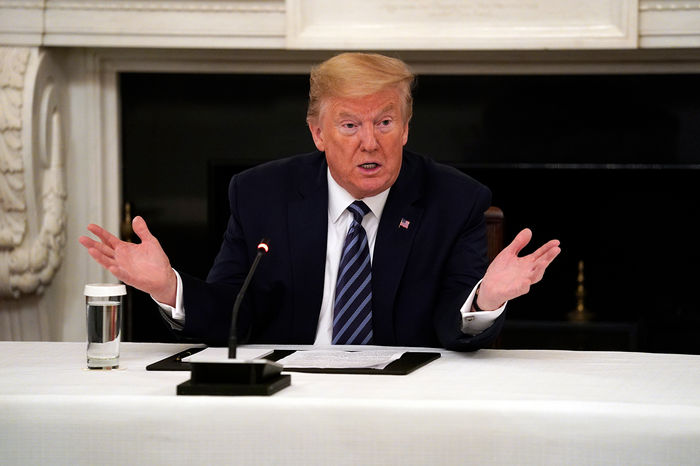Widening political participation requires reforming the House of Lords
Alfie Eltis argues that the gifting of life peerages to only those in the ‘Westminster bubble’ is a missed opportunity to increase participation in politics and diffuse the UK government with a diverse range of expertise.

I discovered recently that my old local MP Nicola Blackwood, who sat from 2010 to 2017 in Oxford West and Abingdon, had become the youngest member of the House of Lords. In her seven unremarkable but crisis-free years of parliamentary service, Blackwood opposed gay marriage and supported fox hunting, eventually losing her seat in the 2017 election to the Liberal Democrats’ Layla Moran. Receiving her peerage in February 2019, she became the youngest member of the House. Anyone under the impression that the government’s furlough scheme is too generous should look at the redundancy package for loyal Conservative MPs. Whilst her life peerage was, naturally, for life, this particular accolade was short-lived - Baroness Blackwood has since been replaced as the Lords’ youngest peer by Oswald Mosley's great-grandson Lord Ravensdale, and then Theresa May's 36-year old ex-special advisor Stephen Parkinson.
On both sides of the Atlantic, Coronavirus has highlighted the massive dangers of anti-expert, amateurish populism.
That life peerages are being handed out to millennials, for brief periods of party rather than public service, should cause great public concern. In Blackwood’s case, she was awarded her peerage after being removed as an MP by a democratic mandate. Parkinson and Mosley were never elected at all. The combination of these powerful incentives for towing the party line, and the career risks for those who don’t - as Boris Johnson’s expulsion of twenty-one Tory rebels last year demonstrated – threatens to create an autocratic style of party leadership where internal debate is stifled. This use of life peerages, as a political tool and personal gift, and the continued role of aristocrats with hereditary peerages, makes British government even more insular, privileged and detached from the realities and experiences of modern Britain. It is neither a recent nor exclusively Conservative phenomenon; Labour PMs Tony Blair and Harold Wilson had to deal with their own high-profile honours scandals, whilst the Liberal David Lloyd George was denounced for selling peerages as long ago as 1922. Yet the Lords have provided key interventions in recent years, including in the Brexit process, Bedroom Tax and Snoopers' Charter, and are a day-to-day force for scrutiny of legislation. Removing it entirely would sacrifice a crucial source of oversight.
The UK's delayed response to Covid-19 has allowed over 32,000 deaths, whilst more rapid, science- and data-driven responses in other countries have kept cases low. New Zealand has only twenty deaths, and Taiwan has kept fatalities below ten. As the Times' admirable exposé revealed, Boris Johnson's government ignored crucial scientific advice whilst mass casualties were still preventable. The Prime Minister missed five important Cobra meetings, whilst “aides were told to keep their briefing papers short and cut the number of memos in his red box if they wanted them to be read.” Commentators have been quick to point out the relative success of female leaders in handling the virus – figures such as Angela Merkel, Jacinda Ardern (New Zealand) and Tsai Ing-Wen (Taiwan). It seems certain any woman would need a far more studious, dedicated work ethic than Johnson’s to reach his position, due to the prevailing sexism in our politics, but the government failure also points importantly to an undervaluing and ignoring of experts. Our government has failed to heed scientific advice, and has politicised scientific bodies – for instance, unelected, scientifically unqualified advisor Dominic Cummings was placed on the nonpartisan Scientific Advisory Group. On both sides of the Atlantic, Coronavirus has highlighted the massive dangers of anti-expert, amateurish populism.
It would benefit Westminster politics massively to involve more voices from outside its own notorious ‘bubble’
One way that I envisage remedying this is to replace the House of Lords with a chamber of experts. We should allot elected representatives, chosen by their peers (as individuals, not party candidates), to different sectors – such as science, healthcare, education, defence, intelligence, industry, agriculture, finance, small businesses, charities and trade unions, along with smaller groups of economists, historians and so on. A large segment should be political experts, drawn from those many existing House of Lords members with lifetimes in politics and public service, and vast knowledge of government, policy and the British state. This would allow public, expert scrutiny of how laws will impact different sectors, that politicians cannot easily neglect or ignore. It would benefit Westminster politics massively to involve more voices from outside its own notorious ‘bubble’ and give direct representation to sectors which often have policy dictated to them. Experts have been denigrated around and after the Brexit referendum, and waiting for people to ‘come crawling back’ to them after the virus wreaks horrific damage would be presumptuous and cruel. It is important that we bring experts into the open and reduce public mistrust of them as shady and aloof, operating behind the scenes of power without a democratic mandate. This would also encourage a wider definition of expertise – placing traditional ‘elite’ experts alongside vocational ones. Britain has millions of skilled, expert professionals – doctors, farmers, soldiers, teachers, engineers, entrepreneurs and so on – who should be recognised as such and play a role in public discourse.
As a Cambridge undergraduate (at Emmanuel, where both Baron Parkinson and Baroness Blackwood studied rather recently), the irony of encouraging voices outside the privileged Oxbridge-Westminster bubble is not lost on me. And, as a History student, the idea of replacing the House of Lords is instinctively a little painful. It is an ancient and distinctly British institution, and holds vast historical significance for people. But Britain has a long tradition of constitutional adaptation, which has contributed to its remarkable historical stability. It has adapted to constitutional monarchy, expanded from a tiny, male electorate to universal suffrage (1928), removed the House of Lords' veto (1911), and lowered the voting age from 21 to 18 (1969). Even the Supreme Court, of recent fame for the prorogation case last year, was created as recently as 2009. Reforming the Lords would mean honouring a proud historical tradition over a historical artefact. Britain needs a more dynamic, representative and publicly involved politics.
 Comment / College rivalry should not become college snobbery30 January 2026
Comment / College rivalry should not become college snobbery30 January 2026 News / Downing Bar dodges college takeover31 January 2026
News / Downing Bar dodges college takeover31 January 2026 News / Cambridge for Palestine hosts sit-in at Sidgwick demanding divestment31 January 2026
News / Cambridge for Palestine hosts sit-in at Sidgwick demanding divestment31 January 2026 Lifestyle / Which Cambridge eatery are you?1 February 2026
Lifestyle / Which Cambridge eatery are you?1 February 2026 Science / Meet the Cambridge physicist who advocates for the humanities30 January 2026
Science / Meet the Cambridge physicist who advocates for the humanities30 January 2026










